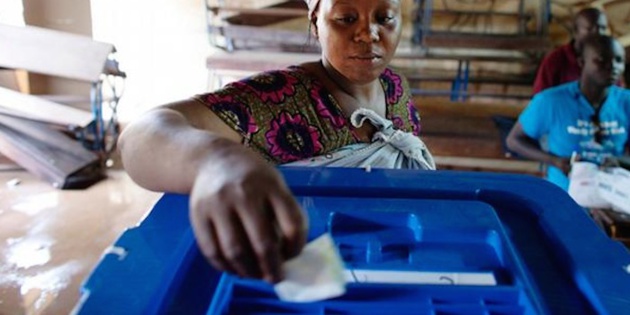29 million registered voters in Tanzania are today (28.10.2020) expected to cast their ballots in a presidential election pitting the incumbent John Pombe Magufuli (JPM) of Chama Cha Mapinduzi (CCM) against the main opposition candidate Tundu Antipas Lissu of Chama Cha Demokrasia na Maendeleo (Chadema).
Lissu returned to the country in late July to run for Tanzania’s top job after spending three years in exile in Belgium following an assassination attempt in 2017. Tanzania’s National Electoral Commission (NEC) cleared 15 candidates to run for the country’s presidency. The voters will also be electing representatives to municipal council and members of parliament.
Chadema has alleged a plot to rig today’s vote. Speaking at their final rally in Dar es Salaam on Tuesday, the party’s leadership led by Lissu claimed that there were plans to lock out their party agents from the polling stations. They appealed to their supporters to stay at the polling centres after casting their ballots to protect their vote.
Early voting in the semi-autonomous archipelago of Zanzibar which started on Tuesday was marred with incidents of violence that saw the arrest of ACT Wazalendo Candidate for Zanzibar’s presidency Maalim Seif Sharif Hamad arrested alongside 72 others. Ahmad was arrested at a polling station when he went to cast his ballot. His party later tweeted that he had been released. He is the main challenger for Hussein Ali Mwinyi of CCM, a former interior minister in Magufuli’s government.
The NEC has also announced new rules that have cast doubts on the transparency of the exercise. Speaking during the swearing-in of the presidential candidate’s agents in Dar es Salaam, the electoral body’s chairman retired judge Semistocles Kaijage said journalists will not be allowed to film, take photographs or conduct interviews inside polling stations. Party agents will also not be allowed to access the polling stations with their mobile phones.
Twitter has also raised an alarm of detecting throttling and blocking of the network in Tanzania ahead of the polls saying such actions are “hugely harmful and violate basic human rights and the principles of open internet.”
Ahead of tomorrow’s election in #Tanzania, we’re seeing some blocking and throttling of Twitter. #TanzaniaDecides2020
Internet shutdowns are hugely harmful, and violate basic human rights and the principles of the #OpenInternet #KeepItOn https://t.co/Q2SJfsFUiD
— Twitter Public Policy (@Policy) October 27, 2020
The candidates have had 63 days to go around the country selling their agenda to the electorate. While Magufuli hopes to get a second five-year term based on his development record, his main challenger Lissu has poked holes on his human rights record in the last five years of his presidency which has been characterized by stifling opposition, and freedom of the press.
Lissu plans to replace the current administrative system with a federal system that will see the introduction of a three-tier governance structure.
A recent study published by KAS Media Africa indicted Tanzania’s media for not adequately playing their role of educating the voters and setting agenda for public debate during the campaign period. The report says Tanzania’s broadcast media failed to provide fair coverage to Chadema’s presidential candidate during the campaign period while their print counterparts even though attempted to be fair, failed to provide critical analysis of the candidates’ manifesto and criticize the state’s abuse of public resources during their campaigns.



